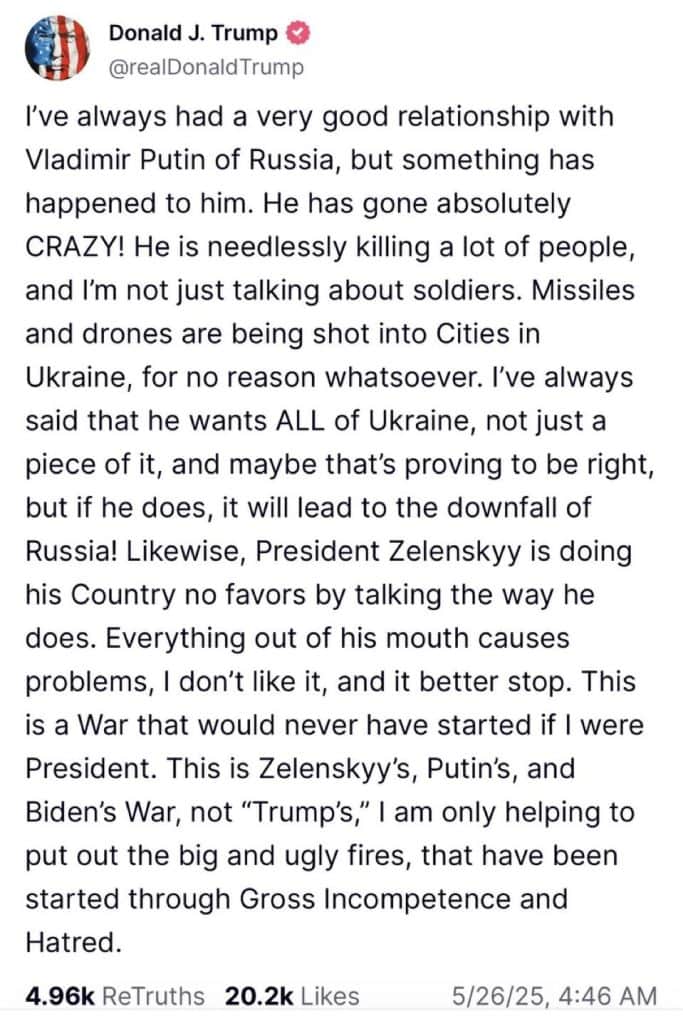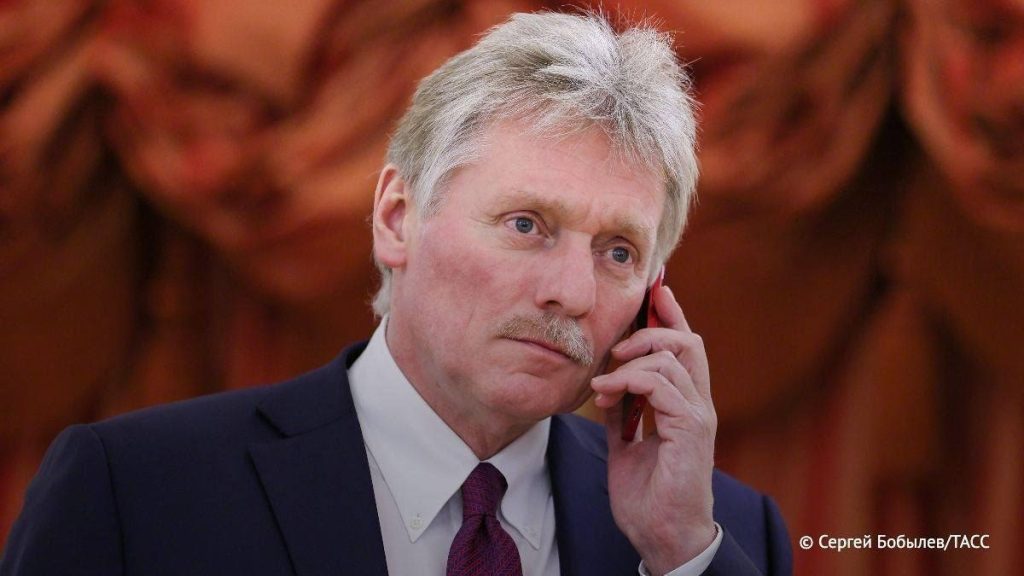The Kremlin on Monday dismissed recent criticism from former U.S. President Donald Trump regarding Russian President Vladimir Putin, attributing Trump’s remarks to “emotional overload” amid heightened tensions over the conflict in Ukraine.
Airstrikes on Ukrainian cities
Trump, reacting to Russia’s latest wave of missile and drone attacks on Ukrainian cities, described Putin as “absolutely CRAZY” and warned that the Russian leader’s actions could ultimately lead to Russia’s collapse.
Said Putin has “lost it”
In a post on his Truth Social platform, Trump wrote, “Something has changed in him. He has completely lost it! I’ve always indicated that he desires ALL of Ukraine, not just a portion, and perhaps that’s turning out to be true. However, if he continues down this path, it will lead to Russia’s collapse!”

The former president, who has previously touted his ability to negotiate with Putin and end the war, also condemned the civilian casualties resulting from the strikes, which Ukrainian officials say killed at least a dozen people and wounded many more over the weekend.
Emotional overload
– There is a certain emotional overload in these statements at this crucial moment, Kremlin spokesperson Dmitry Peskov said, responding to questions from Russian media.

He linked Trump’s comments directly to the recent escalation in Ukraine, suggesting that the former U.S. president’s reaction was driven by heightened emotions rather than a shift in policy.
Peskov also reiterated that work on a draft memorandum with Ukraine is ongoing and that preparations for further negotiations are underway, despite uncertainty over timing and location.

The latest Russian strikes have drawn sharp condemnation from Western leaders, who have called for increased pressure on Moscow. Meanwhile, diplomatic efforts to resolve the conflict remain stalled, with both sides blaming each other for the lack of progress.


ordering enclomiphene purchase england
buy enclomiphene generic alternatives
pharmacie-fr kamagra
kamagra livraison fedex
buying androxal price canada
ordering androxal price uk
discount flexeril cyclobenzaprine canada over the counter
does flexeril cyclobenzaprine need a prescription
cheapest buy dutasteride cheap from canada
canadian pharmacy dutasteride generic
online order gabapentin online no rx
purchase gabapentin real price
buying fildena uk order
purchase fildena uk online
ordering itraconazole uk where buy
cheapest buy itraconazole generic does it works
staxyn without prescription cheap
buy staxyn without rx
purchase avodart buy uk no prescription
avodart prescription from doctors online
donde comprar rifaximin en galerias capon
online order rifaximin new zealand buy online
cheap xifaxan usa overnight delivery
cheapest buy xifaxan uk where buy
druh kamagra v mexiku
kamagra cena v kanadě